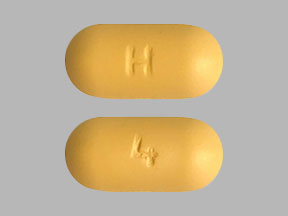Efavirenz and Alcohol/Food Interactions
There are 2 alcohol/food/lifestyle interactions with efavirenz.
Efavirenz Food
Moderate Food Interaction
Taking efavirenz with food increases the amount of medicine in your body, which may increase the frequency of side effects. You should take efavirenz once a day on an empty stomach, preferably at bedtime. Taking it at bedtime may make some side effects such as dizziness, trouble sleeping, drowsiness, trouble concentrating, and/or unusual dreams less bothersome. However, these symptoms may be more severe if efavirenz is used with alcohol or mood-altering (street) drugs. You should avoid driving or operating hazardous machinery until you know how the medication affects you. It is important to tell your doctor about all other medications you use, including vitamins and herbs. Do not stop using any medications without first talking to your doctor.
Efavirenz High Cholesterol (Hyperlipoproteinemia, Hypertriglyceridemia, Sitosterolemia)
Moderate Potential Hazard, Moderate plausibility
efavirenz - cholesterol
Increases in total cholesterol and triglycerides have resulted during treatment with efavirenz. Lipid levels monitoring should be performed before starting treatment and at periodic intervals during therapy.
References
- (2001) "Product Information. Sustiva (efavirenz)." DuPont Pharmaceuticals
Efavirenz drug interactions
There are 755 drug interactions with efavirenz.
Efavirenz disease interactions
There are 5 disease interactions with efavirenz which include:
More about efavirenz
- efavirenz consumer information
- Check interactions
- Compare alternatives
- Pricing & coupons
- Reviews (8)
- Drug images
- Side effects
- Dosage information
- During pregnancy
- Drug class: NNRTIs
- Breastfeeding
- En español
Related treatment guides
Drug Interaction Classification
| Highly clinically significant. Avoid combinations; the risk of the interaction outweighs the benefit. | |
| Moderately clinically significant. Usually avoid combinations; use it only under special circumstances. | |
| Minimally clinically significant. Minimize risk; assess risk and consider an alternative drug, take steps to circumvent the interaction risk and/or institute a monitoring plan. | |
| No interaction information available. |
Further information
Always consult your healthcare provider to ensure the information displayed on this page applies to your personal circumstances.


